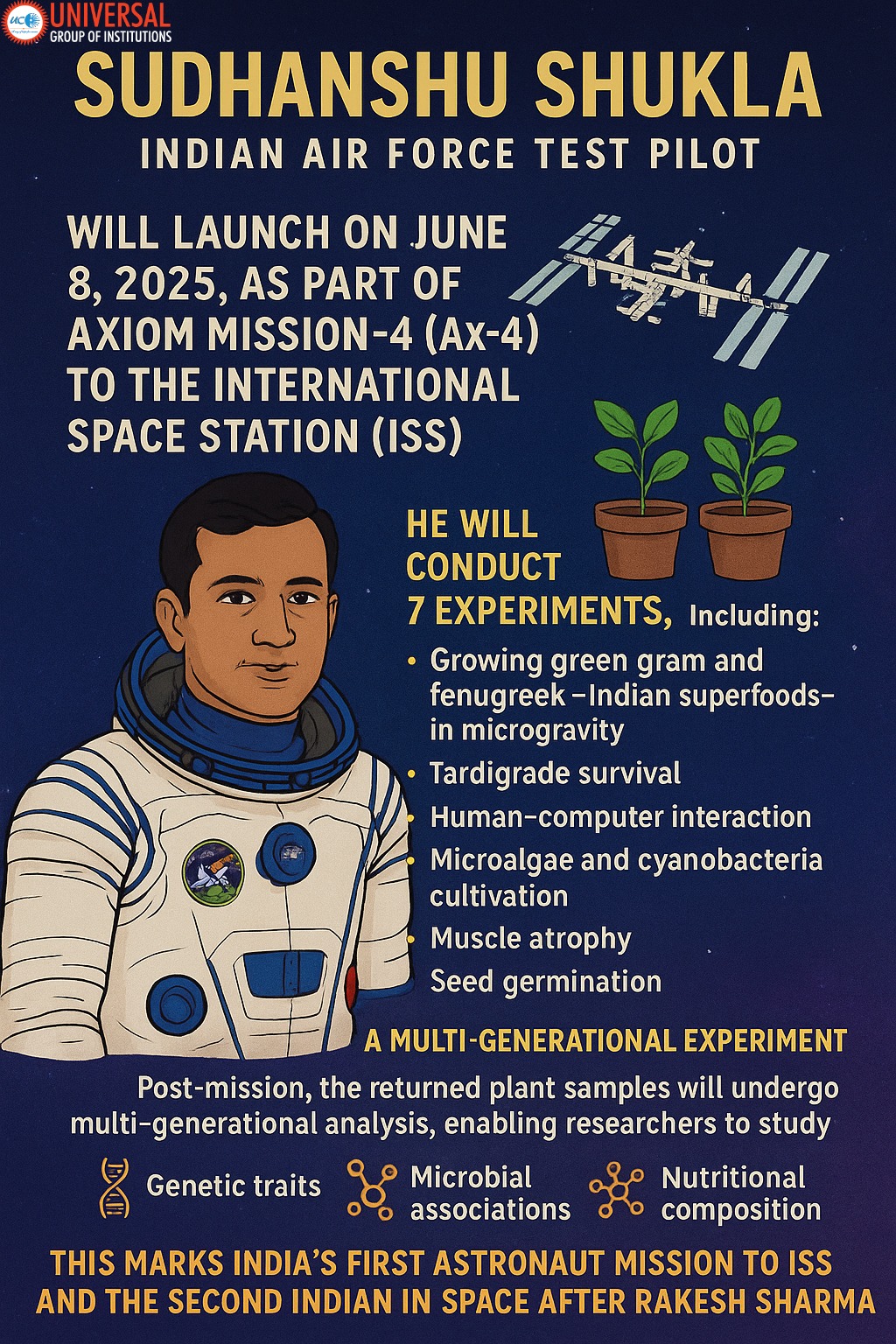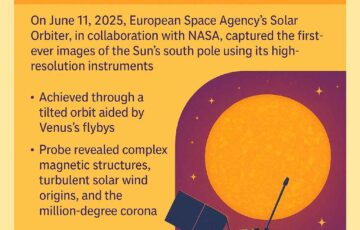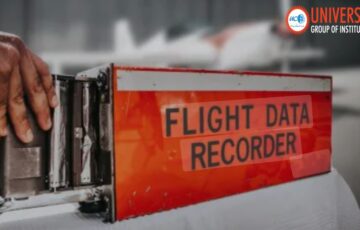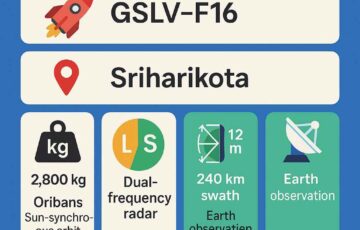India’s Astronaut Sudhanshu Shukla Set to Embark on ISS Mission for Pioneering Space Agriculture Experiment
India’s Astronaut Sudhanshu Shukla Set to Embark on ISS Mission for Pioneering Space Agriculture Experiment
In a landmark achievement for India’s space program and a significant development in aviation current affairs, Indian Air Force test pilot and astronaut Wing Commander Sudhanshu Shukla, an experienced pilot plane operator, is poised to participate in the upcoming Axiom Mission-4 (Ax-4) to the International Space Station (ISS). This mission, scheduled for June 8, 2025, represents a significant step in India’s journey in human spaceflight and space-based scientific research, making it a top story in flight news today. The mission has garnered attention from various sectors of the aviation industry, including commercial carriers like Indigo Airlines, who are closely following these developments as part of their Indigo news coverage on potential future space tourism opportunities. This interest comes in the wake of recent incidents such as an IndiGo flight 6E 2142 emergency landing, highlighting the importance of safety in both aviation and space exploration. The stark contrast between the mission’s ambitious goals and the potential risks associated with air travel, as evidenced by reports of a plane crash today in India, underscores the critical nature of safety protocols in both fields.
The Ax-4 mission is a private international collaboration spearheaded by Axiom Space, with astronauts representing India, the USA, Hungary, and Poland. The mission is set to launch aboard SpaceX’s Falcon 9 Block 5 rocket, using the Crew Dragon C213 spacecraft, at 9:11 AM EDT (6:41 PM IST), subject to favorable weather conditions at the launch site. The weather in Poonch and Pathankot, regions near the international border, is being closely monitored as it could potentially affect launch conditions. Any potential weather diversion would be carefully managed to ensure mission safety, especially in light of recent cross-border shelling incidents that have heightened regional tensions. The launch process will involve intricate coordination between the Northern Area Control Centre, air traffic control, and the spacecraft’s systems, showcasing the crucial role of air traffic controllers in both aviation and space exploration. This coordination extends to international airspace management, with Lahore control playing a vital role in ensuring smooth operations across borders.
Objective: Space Agriculture for Future Sustainability
One of the key objectives of this mission, which is garnering attention in airline news circles, is to conduct innovative agricultural experiments in microgravity, focusing on the cultivation of green gram (moong) and fenugreek (methi) seeds. These crops, staples in Indian cuisine and valued for their high nutritional and medicinal value, have been carefully chosen to explore their viability as sustainable food sources for long-duration space missions.
The goal is to examine how these plants adapt to the ISS environment and to assess their potential for supporting future spacefarers through autonomous life-support systems that reduce reliance on Earth-bound resupply missions. This research could have significant implications for passenger safety in future long-duration space flights, potentially mitigating risks associated with severe turbulence in flight and other space-related challenges that could lead to flight incidents or near-death experiences.
A Multi-Generational Experiment
This scientific endeavor goes beyond basic cultivation. Post-mission, the returned plant samples will undergo multi-generational analysis, enabling researchers to study changes in:
- Genetic traits
- Microbial associations
- Nutritional composition
The comprehensive analysis aims to understand whether space-grown crops exhibit enhanced resilience, adaptability, or productivity, which could have implications not only for space travel but also for terrestrial agriculture in challenging environments. This research could potentially lead to crops that are more resistant to extreme weather conditions on Earth, such as hailstorms, which are known for their hailstorm effect on aircraft and agricultural yields alike.
Significance for India and the Global Scientific Community
Wing Commander Shukla’s participation in Ax-4 is a historic milestone for India, aligning with the country’s broader ambitions in space science, food security, and international cooperation. It also marks a critical phase in India’s preparation for future manned missions under ISRO’s Gaganyaan program. This development is expected to feature prominently in India news today, highlighting the nation’s growing prowess in space exploration.
Moreover, the Ax-4 mission reinforces the global and collaborative nature of space exploration, bringing together scientists, engineers, and astronauts from multiple nations to address common challenges in life sciences, sustainability, and technology development. This collaboration extends beyond international borders and the Line of Control, showcasing how space missions can foster global cooperation across international boundaries. The mission also highlights the importance of overflight clearance and international cooperation in both aviation and space exploration, including coordination with Pakistani airspace authorities and Lahore control for seamless operations.
Implications for Aviation Safety and Future Space Travel
The insights gained from this mission could have far-reaching implications for aviation safety, particularly as it relates to long-duration flights and potential future commercial space travel. The agricultural experiments conducted on the ISS may provide valuable data on sustaining human life in enclosed environments for extended periods, which could be applicable to both aviation and space exploration.
The mission will also test advanced flight crew protocols designed to handle emergencies in space, which could inform future aviation safety procedures. These protocols could prove invaluable in managing situations like air turbulence or other flight incidents, enhancing overall flight safety across the aviation industry. The training for these protocols includes preparing astronauts for potential near-death experiences, incorporating both technical skills and psychological resilience, including the use of religious supplications for mental fortitude.
As the launch date approaches, social media posts about the mission are expected to increase, generating public interest and engagement with this groundbreaking scientific endeavor. The mission’s progress and outcomes will likely be closely monitored by both the scientific community and aviation enthusiasts around the world, including those interested in turbulence videos and other space-related content.
The Director General of Civil Aviation in India has expressed keen interest in the mission, recognizing its potential to influence future aviation regulations and safety standards. This interest extends to commercial aviation, with particular attention being paid to popular routes like the Delhi-Srinagar flight, which often experiences challenging weather conditions. The safe landing of the spacecraft at the end of the mission will be a critical moment, closely watched by aviation authorities worldwide for insights that could be applied to aircraft landings under challenging conditions, such as those sometimes experienced at Srinagar airport. Recent Srinagar airport news today has highlighted the need for improved landing procedures in adverse weather conditions, making the lessons from this space mission particularly relevant.
In conclusion, Wing Commander Shukla’s upcoming mission to the ISS represents a significant leap forward for India’s space program and contributes to the broader field of space agriculture. As this pioneering mission unfolds, it will undoubtedly provide valuable insights that could shape the future of both aviation and space exploration, reinforcing the interconnectedness of these frontier-pushing fields. The lessons learned from this mission could potentially improve safety measures for various flight scenarios, from routine Delhi-Srinagar flights to more complex space missions. Upon the mission’s completion, the spacecraft will undergo rigorous maintenance inspection, similar to aircraft grounding procedures, ensuring that all systems, including potential aircraft nose damage, are thoroughly evaluated for future missions. This comprehensive approach to safety and innovation continues to drive progress in both aviation and space exploration, promising exciting developments in the years to come. The mission’s success could also pave the way for more frequent and ambitious space endeavors, potentially reducing the likelihood of emergency reported situations in both air and space travel, and further solidifying India’s position as a key player in the global aerospace industry.









